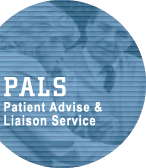Case StudiesCase OneMr X arrived at an outpatients department for an 11.00 am appointment. The department was locked and after waiting half an hour, he visited the PALS office. He was angry that he had made a wasted journey. He explained that a similar incident had happened with a previous appointment. He asked if we would investigate. A PALS officer visited the department concerned and spoke to senior staff, who were unable to explain why an appointment had been given to Mr X on that particular day, as staff do not work that day. They sent sincere apologies to Mr X. The PALS officer then contacted the local agency who run the department who then liaised with staff about clinic appointments. The PALS officer phoned Mr X and passed on the apologies and told him staff would discuss the situation with him at his next appointment. Mr X agreed to this but if there are any further problems will contact PALS. Case TwoMr Y brought his two-year-old son to the Accident & Emergency Department (on advice from NHS Direct) at 10.30 am. The child had a cut finger and was seen by a nurse at 10.45 am who put a steri-strip on and advised them to wait to see a doctor. A doctor did not see the child until 4.00 pm. The doctor then recommended a steri-strip. Mr Y complained about the long wait for a young child to see a doctor, and wanted to know why the nurse did not send them home. The PALS officer went to Accident & Emergency and was informed that there had been an influx of several serious emergency cases that day, and as a consequence the child’s injury was a low priority case. The PALS officer then arranged a meeting with the Senior Sister in the department to discuss this case and similar complaints. It was agreed that there was often a lack of communication between the staff and casualties in Accident & Emergency regarding long delays. It was agreed that in future, when there were long in waiting times PALS would be contacted to ensure effective communication with patients, and give reassurance that they would be seen as soon as possible. The PALS officer phoned Mr Y, apologised for his unsatisfactory experience and gave the reasons for the waiting time for his son. It was also explained how there would be improved communication in future. Case ThreeMr Z came to the PALS office concerned about his wife’s treatment as an inpatient. He explained that she was distressed about having a catheter and eating pureed foods. He asked if these two practices could be reviewed. Mr Z felt that his wife’s emotional welfare was important to her recovery. The PALS officer visited the ward sister who, after checking the medical notes and with the consultant, removed the catheter and Mrs Z was returned to a normal diet the following day. Mr Z returned to the PALS office and relayed that his wife was much happier now and was grateful for the service we had provided.
|
||||||||||
|
||||||||||

